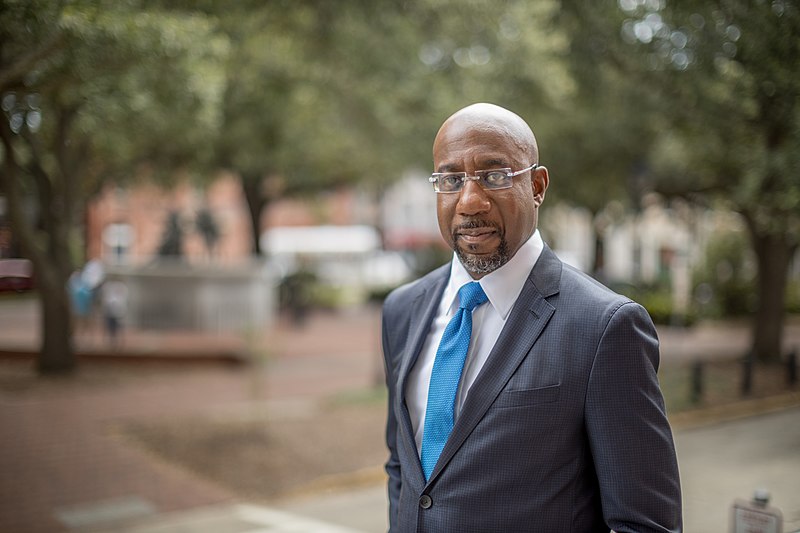On January 5, the state of Georgia elected Rev. Raphael Warnock in one of two US Senate races that handed effective control of the chamber to the Democrats.
Since 2005, Warnock has been the senior pastor of Atlanta’s Ebenezer Baptist Church, where Martin Luther King, Jr., served as co-pastor from 1960 until his assassination in 1968. In that role, Warnock has decried the drug war and led community initiatives to back up his words.
But Warnock’s anti-drug war activism began long before he gained access to Ebenezer’s pulpit. Although he hasn’t publicly commented on issues like safe consumption sites, syringe service programs, naloxone access or medication for opioid use disorder, here’s where Warnock stands on the critical harm reduction issues he’s addressed so far.
HIV/AIDS
Warnock started advocating for expanded health care access while at Morehouse College (also King’s alma mater). As a freshman, he helped lead a teen peer health education program.
In 2001, Warnock became a pastor at Douglas Memorial Community Church in Baltimore. His first weekend there, he led a series of public discussions on the HIV/AIDS epidemic; and he ended one service that year by getting tested himself.
“Everything I do is theologically and biblically informed,” Warnock told the Baltimore Sun in 2001. “The Old Testament prophet Hosea said, ‘My people are destroyed for lack of knowledge.’ I am saying that that is literally the case with regard to HIV/AIDS. People do not know what they need to know about the virus itself, and they do not know their HIV status. If the clergy went to get tested en masse, we could create a climate where you remove the stigma.”
In 2020, Warnock told Project Q that as a US Senator he “would work to make prescription drugs, including PrEP, accessible and affordable and support increased funding for HIV and AIDS prevention, treatment and research.”
Criminal Justice
For Warnock, criminal justice reform is a personal issue. In 1997, his older brother Keith was sentenced to life in prison on a first-time drug charge. Keith was released in June 2020 due to COVID-19 concerns; the younger Warnock was there to greet him, just hours after delivering a eulogy for Rayshard Brooks, a Black man murdered by police officers in Atlanta.
Warnock has criticized the carceral state extensively. In 2019, he gave a lecture at Harvard’s Memorial Church titled “Let My People Go: The Scandal of Mass Incarceration,” in which he shared his brother’s story. In 2018, he condemned the racist origins of the drug war during a service to commemorate the 50th anniversary of King’s assassination.
“For 35 years we’ve had a war on drugs,” Warnock said. “Back then we were dealing with heroin, crack. Now we’re dealing with meth, opioids. It’s interesting to me that now we have a public health emergency. I’m glad we’ve become so enlightened now that the bodies are suburban, rural and white.”
His words highlighted that an overdose crisis among Black Americans going back decades was met not with a public health response, but rather a government decision to criminalize and pathologize drug use.
“In a war, you have enemy combatants,” he continued at that service. “Public health crisis, you have patients.”
In 2016, Warnock’s church partnered with local officials to run the first one-stop expungement event in Fulton County for people convicted on minor charges. “These expungement events reduced what used to take 120 days to one day,” Warnock said in his Harvard lecture.
Warnock doesn’t advocate for outright abolition of the prison-industrial complex. He supports ending cash bail, but only for “nonviolent” misdemeanor charges. He does not support defunding the police.
Marijuana Policy
Warnock has not included support of full legalization in his platform, although he has spoken out repeatedly about marijuana decriminalization and sentencing reform. In a June 2019 speech at a conference on ending mass incarceration, Warnock shared with his audience an anti-racist argument for decriminalization, calling it a “terrible irony” that “there are some folk who are becoming billionaires for selling the same stuff that’s got our children locked up all across America.”
“Where is the justice?” Warnock continued. “It’s not enough to decriminalize marijuana. Somebody’s got to open up the jails and let our children go.”
The elections of Warnock and fellow Georgia Democrat Jon Ossoff to the US Senate have given the Democrats an effective majority in the chamber. Assuming a party-line vote, the Democrats will be able to bring legislation such as the historic Marijuana Opportunity and Reinvestment (MORE) Act up for debate on the Senate floor.
But getting the act passed would require 60 Senate votes. That’s unlikely to happen, as it would require at least 10 Republicans to vote in favor of the act. In December 2020, Senate Majority Leader Mitch McConnell (R-KY) criticized the Democratic-majority House’s decision to bring forth a vote on the MORE Act.
Photo via Wikimedia Commons/Creative Commons 4.0





Show Comments